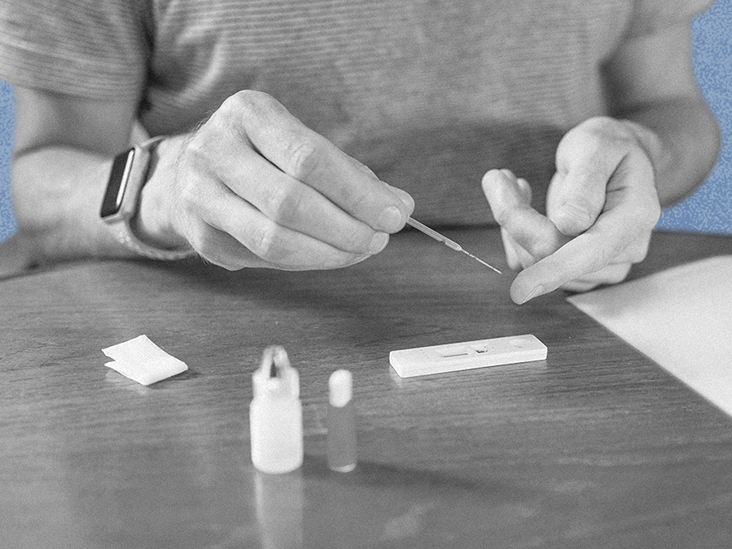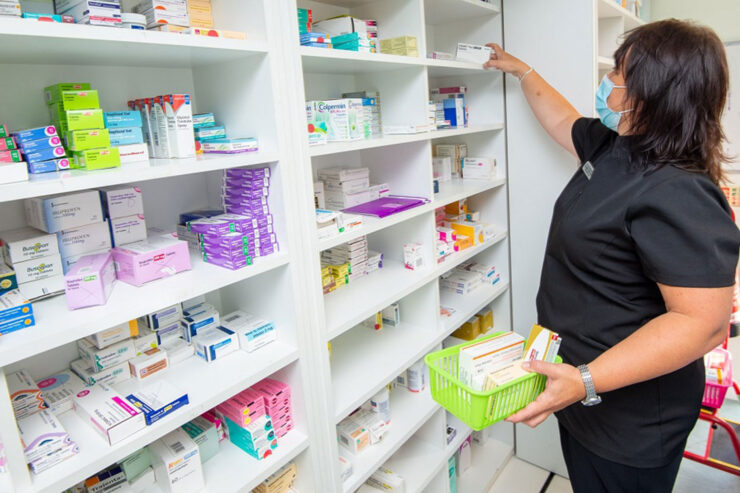Maybe you’ve noticed some itching or discharge down there. Perhaps you’re seeing a few sores. Conversely, you could be symptom-free, but you are sexually active and haven’t had a recent check-up. If you think it’s possible you’ve been exposed to a sexually transmitted infection (STI), you need to take action.
Don’t worry — you aren’t alone. According to the Centers for Disease Control and Prevention, there are 20 million new STI cases annually in the U.S. These are common problems, and there’s no need to feel embarrassed. Instead, now is the time to be proactive to protect your health — and your partner’s.
Getting tested is your first step. Fortunately, there are plenty of options for discovering what’s going on with your body. Take a look below and determine which testing option works best for you.
At-Home Testing

Getting to the doctor or clinic isn’t always easy. Work and school schedules or your location can make it tough to get an appointment. No worries. According to Nurx, at-home STI testing kits are a convenient, effective way to find out if you have HIV, chlamydia, gonorrhea, or other STIs.
These kits use self-collected blood, urine, or genital swab samples. They’re 95%-99% accurate, and you’ll get certified lab results delivered discreetly to your home. Keep in mind that if you have active symptoms or need fast results, you should make an appointment with your doctor.
Doctor’s Office
Making that doctor’s appointment really is your best bet if you need results quickly. Tell your provider why and when you think you were exposed and the last time you were tested for STIs. Annual testing is recommended for anyone who is sexually active.
If you have any warts, sores, or lesions, ask your doctor to look at them. They’ll be able to order any lab tests that might be required for an official diagnosis.
Planned Parenthood

As one of the nation’s largest reproductive healthcare clinics, Planned Parenthood is dedicated to providing sexual health services for everyone. This includes both STI testing and treatment, as well as some vaccines. In addition, the staff can provide resources to help you prevent STIs in the future.
The cost for testing varies. It depends on your income, location, and eligibility for assistance. Search the Planned Parenthood website using your ZIP code, city, or state to find the location closest to you.
Local Health Department
If you’d rather go to a facility affiliated with your city or county, your local health department is an option. These government-funded facilities offer free or low-cost STI testing.
Be aware that your local health department might not offer every test you need. Most such clinics will offer testing for HIV, syphilis, gonorrhea, and chlamydia. If they have enough funding, some locations may also test for herpes, trichomoniasis, and hepatitis.
Pharmacy

You might think of your nearby pharmacy as an easy spot to get your flu or COVID-19 vaccine. It’s also a place where you can buy at-home STI test kits. Some national chains go one step further and offer STI testing by appointment.
The pharmacists at some locations are trained to administer various tests themselves. Others can analyze samples collected by outside labs. Call and ask what services the pharmacy provides to be sure you can get the answers you need.
Urgent Care
These 24/7 clinics are great if you have poison ivy, a suspicious bug bite, or an ear infection. If you don’t have a primary care doctor, they can also offer you quick, discreet STI testing. Once you get your results, you can go back for any treatment you need.
Don’t worry about making an appointment for the test; you don’t need one. Just walk in and take your place in line. Most insurance companies cover urgent care visits, but you will be responsible for the deductible.
Student Health Center

What if you’re a student? It isn’t exactly easy to hitch a ride off campus to get an STI test. Breathe easy. Most college and university campuses have student health centers that offer testing and make it easy to drop by between classes.
These services are confidential, and healthcare providers can typically offer counseling as well. Your school’s administration has a vested interest in keeping students healthy, so getting tested won’t bust your budget. Most tests cost between $10 and $20.
Mobile Reproductive Health Center
Not every community has a doctor nearby to give you a test or check out your symptoms. If you live in a rural location or don’t have easy access to healthcare, consider a mobile reproductive health center. It’s a van outfitted with medical equipment, a lab, and reproductive healthcare providers.
They’ll come to you, give you a test, and provide you with quick results. There are roughly 700 mobile clinics across the country. To find one closest to you, check out The Mobile Health Map. You can search by city and state.
Have “The Talk”

When it comes to STIs, taking a test is the easy part. If you have an infection, your next step is telling your sexual partner or partners so they can get tested. This can be an uncomfortable, tense conversation, but there are ways to make it easier.
Choose a time when neither of you will be distracted. Come armed with the facts about the STI and treatment options so you can answer your partner’s questions. Resist playing the blame game. STI symptoms can take days or longer to show up, so it’s hard to know who had the infection first.
Most importantly, take precautions if you think your partner will become angry or violent. If you feel unsafe, share the news via text, email, or phone call.
Ultimately, if you think you’ve been exposed to an STI, don’t wait to get tested. If you put it off until you have symptoms, you’ll allow the condition to progress. Treating an STI is generally much easier when you catch it early. Even if the infection cannot be completely cured, you need to seek treatment to protect yourself and your partner. Most importantly, be sure you practice safe sex in the future.

